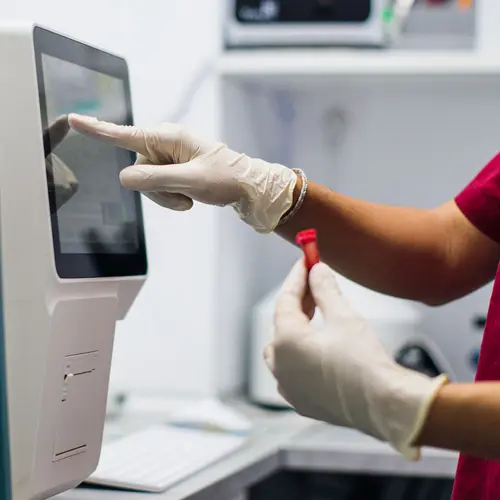When you have Crohn’s disease, you may need help getting the proper nutrients.
Flares, symptoms, surgeries, and medication can make it harder for your body to absorb essential vitamins and minerals. If you avoid eating foods that are rich in nutrients because they trigger symptoms, it may lead to vitamin and mineral deficiencies.
Your doctor may suggest supplements to fill in the gaps. They can help you manage Crohn’s disease symptoms and ward off problems like anemia and osteoporosis.
Supplements and a Healthy Diet
It’s possible to get the vitamins and minerals you need from a healthy diet, but Crohn’s disease often gets in the way.
Many foods that are rich in vitamins and minerals can be trigger foods for someone with Crohn’s, says Kristi King, a dietician with the Academy of Nutrition and Dietetics. Spinach and leafy greens, for example, may lead to diarrhea, bloating, or cramping.
It’s a balancing act to eat a nutrient-rich diet without making your symptoms worse. “This is where supplements come into play,” she says.
Vitamin and Mineral Supplements for Crohn’s Disease
Your doctor may recommend these vitamin and mineral supplements.
Calcium. Calcium is good for your bones and teeth. But calcium-rich foods, like dairy products and dark, leafy greens, may aggravate your symptoms. Your doctor may suggest a calcium supplement with vitamin D, which helps your body absorb calcium.
Folic acid. Some medications for Crohn’s get in the way of your body’s ability to absorb folic acid. Your body needs it for healthy cells and to process fats and carbs. Foods rich in folic acid include asparagus, avocado, Brussels sprouts, dark and leafy greens, fortified cereal, kidney beans, orange juice, rice, and wheat germ.
Iron. Your red blood cells use iron to carry oxygen through your body. If you don’t have enough, you may develop anemia, which can be a serious complication with Crohn’s. Your doctor will test your iron levels before recommending a supplement because too much iron can be bad for your liver. Foods like beans, beef, beef liver, canned tomatoes, iron-fortified cereal, oysters, sardines, spinach, and tofu are iron-rich foods.
Magnesium. This mineral affects your energy, body protein, and muscle contractions. It also plays a role in bone and a heart health. You may have low magnesium from inflammation, chronic diarrhea, or removal of your jejunum or ileum. Foods with magnesium include beans, fortified cereal, green and leafy vegetables, nuts, and whole grains.
Potassium. Your body needs it for healthy muscles, cells, and blood pressure. Crohn’s symptoms like vomiting and diarrhea may lower your potassium level. Foods rich in potassium include beans, carrots, cucumbers, dairy products, eggplant, fish, leafy greens, potatoes, poultry, pumpkins, tomatoes, and zucchini.
Vitamin B12. If you’ve had surgery or problems with your ileum, your doctor may suggest a vitamin B12 supplement to keep your nerve and blood cells healthy. Foods with vitamin B12 include beef, clams, fortified cereal, liver, milk, trout, and tuna.
Vitamin D. Most doctors recommend a vitamin D supplement to help your body absorb calcium and control inflammation in your intestine. It’s possible that vitamin D may also help you feel better. Foods high in vitamin D include cod liver oil, egg yoks, fortified cereal, fortified yogurt, milk, orange juice, salmon, sardines, and tuna.
Vitamins A, E, and K. Your body needs these vitamins for healthy cells, blood, and bones, and to fight infection. Inflammation makes them harder to absorb. Foods with vitamin A include broccoli, carrots, and red peppers. Foods with vitamin E include almonds, peanuts, and sunflower seeds. Foods with vitamin K include broccoli, collard greens, and soybeans.
Zinc. Your body needs it to fight off bacteria and viruses. Crohn’s symptoms like severe diarrhea, short bowel syndrome, and small intestine disease may lower your zinc level. Foods rich in zinc include: beef, bran, fortified grains, legumes, nuts, pork, poultry, shellfish, and whole grains.
Liquid Supplements
If your appetite or symptoms make it hard to eat, your doctor may suggest a liquid supplement. These include: Enlive, Lipisorb, Modulen IBD, Optimental, Peptamen, Subdue, and Vivonex
Other Supplements
These supplements show promise, but we need more research to support their use with Crohn’s disease:
Boswellia. “Small studies have shown this botanical to help prolong remission in some patients,” King says.
Marshmallow. There’s a lot of buzz about this herb in the field of inflammatory bowel disease, King says. It’s may help with inflammation.
N-acetylglucosamine. A small study suggests this nutrient, which comes from shellfish, may help with complications from Crohn’s disease. “But there’s not enough information to provide solid recommendations,” King says.
Omega-3 fatty acids. Omega-3 fatty acids are known to help with inflammation, but there’s no research specific to Crohn’s disease.
Probiotics. “We know probiotics are essential for a healthy gut,” King says. “However, the research just has not proven yet that probiotics are beneficial in the Crohn’s disease population.”
Turmeric. This antioxidant, which comes from a root in the ginger family, may reduce inflammation and support your immune system. But there are only a few small studies so far.
Wormwood. Small studies suggest this herbal supplement may be helpful for people with Crohn’s when it’s combined with medication, King says. But larger studies are needed.
Check with your doctor before you take any supplements. They may trigger symptoms, especially during a flare, and may have side effects like nausea or diarrhea.
Remember that supplements aren’t regulated by the FDA. Even if it says something on the label, the claim may be unproven and the supplement may be unsafe or ineffective.
“I suggest proceeding with caution and reviewing the supplement with your GI physician and a registered dietician,” King says.

